I greatly appreciate your support. You can help us create more videos like this or click on our sponsored ads to assist us in reaching more people who need to focus on their health.
Hello everyone, welcome to the latest episode of the Jembon Health Channel. I’m Jembon. Today, I want to discuss a mineral called zinc. Before we start, I’d like to say that our channel primarily shares health information. Languages have boundaries, but health does not. No matter where you are in the world, I am willing to share with you. If you like our channel, please remember to click the subscribe button in the bottom right corner. If you really like the topics we discuss, please give us a like, click the bell icon, and then share it with your friends around you. If you are currently browsing using my blog, you can sponsor me, or click on the advertisements to sponsor me. This will enable me to produce more videos like this and help more people in need. Now, let’s get into today’s topic and talk about the mineral zinc.
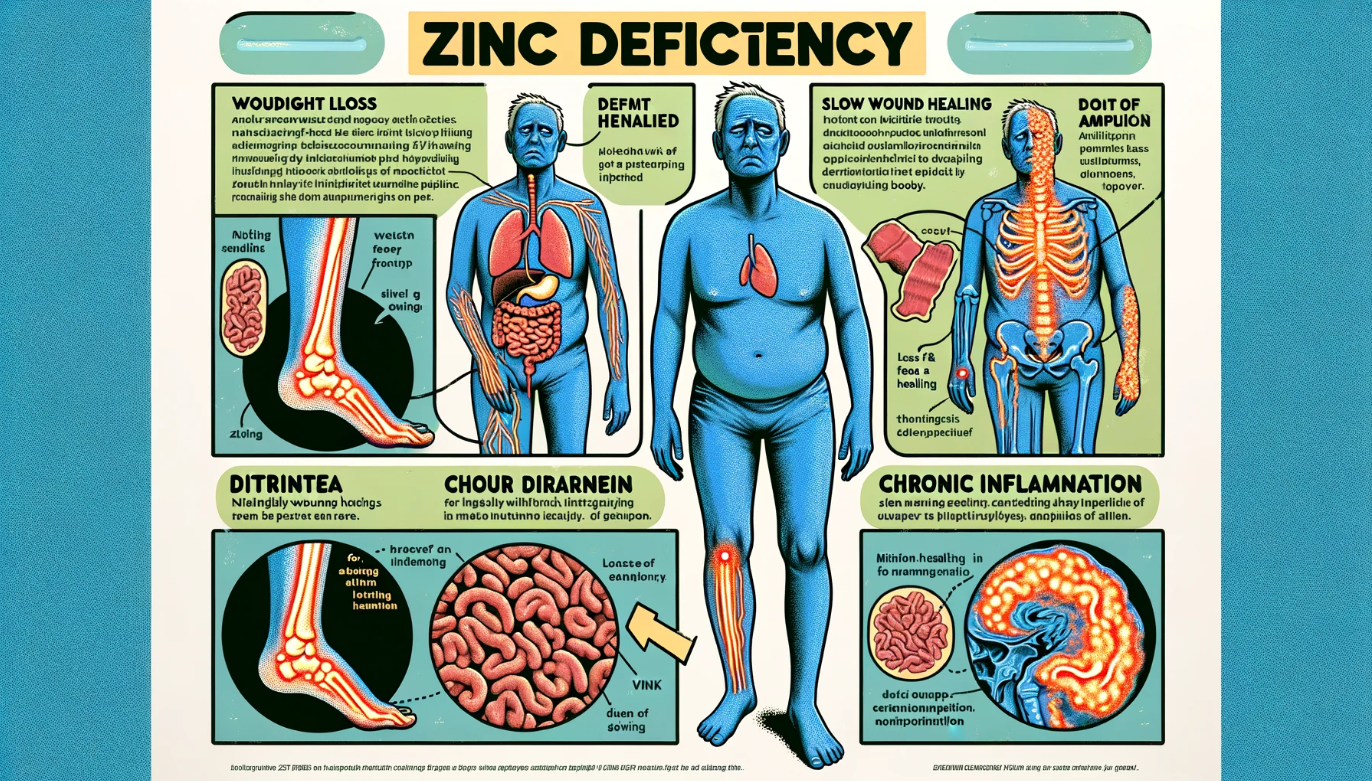
It turns out that 2 billion people on Earth are zinc deficient. Zinc has become especially popular in recent years, especially in the last two years, due to a pandemic that has made people realize that zinc can boost immunity, so many people have started taking zinc. What happens if a person lacks zinc? The main issue is weight loss. If your wounds are always slow to heal, for example, if you get injured and it just doesn’t heal, you might need to be aware of a zinc deficiency. Ah, those who lack zinc often experience diarrhea, loss of appetite, and chronic inflammation, meaning you’re always in pain here or there, and injuries don’t heal easily, leading to ulcers over time, which isn’t surprising, as these are all symptoms of zinc deficiency.
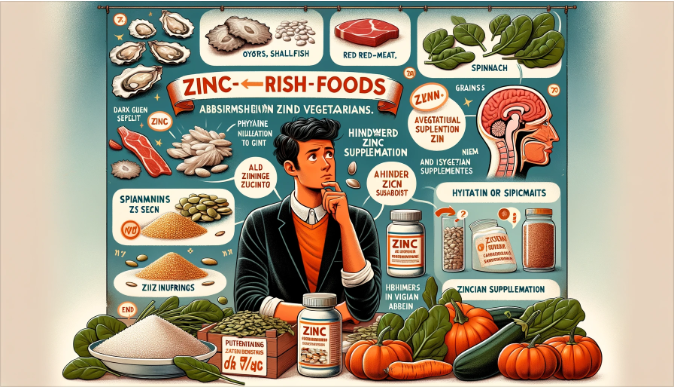
Actually, it’s easy to get zinc through food, as many foods are rich in zinc, including oysters, all shellfish, red meat, and pumpkin seeds. If you eat the foods I just mentioned two or three times a week, you should get enough zinc from your normal diet. However, some people may not get enough zinc, like vegetarians, who need to be careful. The reason is that grains contain a substance called phytate, which hinders the absorption of zinc. Additionally, dark green vegetables like spinach, although rich in zinc, also contain oxalates, which can interfere with zinc absorption. So, if you’re a vegetarian, you might need to supplement with nutritional supplements, as you won’t get enough zinc from not eating meat. It’s best to regularly use these supplements to avoid insufficient zinc absorption from food.
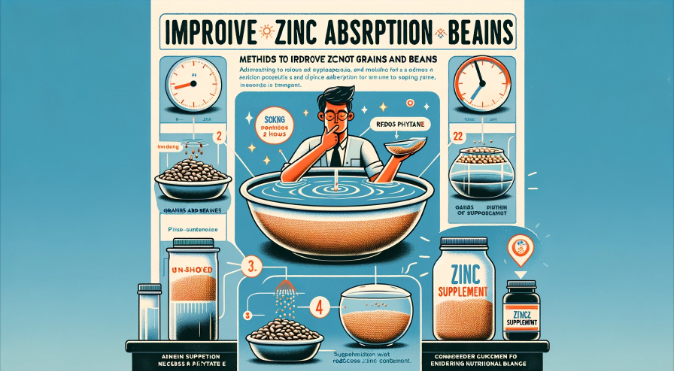
As I said, most grains contain phytates. How can we improve zinc absorption? For example, if you don’t want to take zinc supplements, you can soak beans and grains for about two hours, which reduces the phytate content and improves zinc absorption. However, for long-term nutritional balance, you should consider supplementing with zinc.
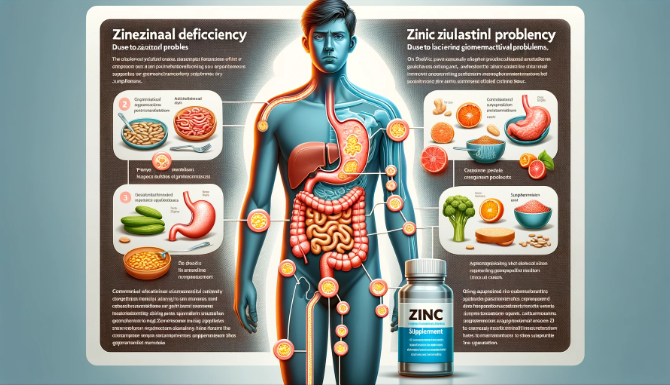
Additionally, several groups of people are prone to zinc deficiency, such as those with gastrointestinal problems. If your gastrointestinal absorption is poor, like with intestinal tumors, gastric ulcers, or irritable bowel syndrome, these issues can lead to zinc deficiency. That means, if you have these problems, supplementing with zinc is a good choice, as you’ll struggle to absorb enough zinc from food.
Moreover, if you have the following symptoms, consider supplementing with zinc, which will make you feel much better. Of course, zinc isn’t the only thing you need to supplement, but if you have the following symptoms, adding zinc will help balance your overall nutrition. These include depression, memory decline, eczema, dermatitis, acne, because zinc helps combat inflammation. Additionally, if you’ve lost your sense of taste or smell, you need zinc. I want to talk more about the past couple of years and the pandemic, as some people have lost their sense of taste and smell post-recovery. It turns out these senses rely on an enzyme, a major component of which is zinc. If you’re zinc-deficient, this enzyme won’t be secreted, and you’ll lose your sense of taste and smell. Especially in the past two years, if you’ve lost these senses post-cold or pandemic, you need to quickly supplement with zinc to restore these enzymes and regain your senses, which is very important.
Also, if you have any gastrointestinal ulcers, you’re definitely zinc-deficient. If you have gastric ulcers, you definitely need to supplement with zinc. For example, if you suddenly start showing cold symptoms, you can quickly supplement with zinc, even 100-150 mg per day is fine in the short term, like for a week or two, but not long-term. However, if you have any ulcers, as I mentioned, these are chronic conditions, and you need to supplement with zinc long-term.
Some people are always constipated and should consider supplementing with zinc. In the past, people said to eat oysters for virility, which is similar, as oysters are rich in zinc. So, if you supplement with zinc, you’ll have an easier
time with bowel movements. Plus, zinc is a mineral that controls your immune system. If you lack it, your immunity will be low, and you’ll often get sick. Many people, especially in the last two years, have been supplementing with zinc, taking 50-100 mg per day, but still frequently fall ill. Why is this?
The secret lies in the fact that zinc should not be used alone. If your zinc dosage is high, it can inhibit the copper in your body. If your zinc and copper ratio is off, you’ll continue to get sick. If you’re copper-deficient, what symptoms might you have? You’ll frequently fall ill, feel cold, suddenly have a lot of white hair, have unstable walking, dark circles under your eyes, blurred vision, and most importantly, feel extremely weak and lethargic. If you’re in this situation and have been supplementing with zinc long-term, then you need to consider supplementing with copper. The zinc-copper ratio is very important. If you take about 50 mg of zinc daily, you usually don’t need extra copper, but if you take more than 50 mg of zinc daily, then you should consider supplementing with 2 mg of copper daily to balance the zinc and copper ratio, making long-term zinc use safe. However, zinc should not be used long-term in high doses. Low doses are fine, but for high doses, like 50 mg or more daily, it’s best to supplement with copper for long-term use.
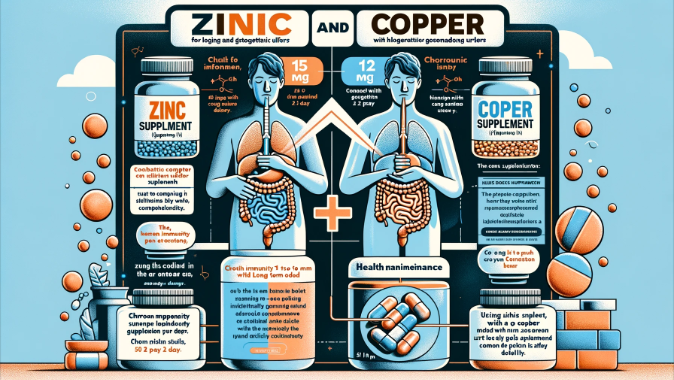
For those who need to use zinc long-term, like those with chronic illnesses or gastrointestinal ulcers, which can’t be cured in a week or two and may require months to a year or more, if you have digestive system issues, it’s best to use zinc and copper together. The zinc supplement I often recommend is from the Jerry brand. Each pill contains 15 mg of zinc and 1 mg of copper. If you’re using it for health maintenance, 1 to 2 pills per day are fine, which can enhance your immunity and resistance. But if you have a chronic illness, like frequent gastrointestinal ulcers, you might use a slightly higher dose of 50 mg zinc, but then you need to add the previously mentioned 2 mg of copper daily for the safest use. You don’t have to worry about long-term use if you have both copper and zinc. If not, 15 mg of zinc is already enough, unless you’re a chronic patient, like with chronic inflammation or digestive system issues, then you need to use 2 mg of copper to complement it. This is the secret to supplementing with zinc.





